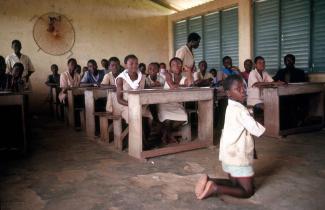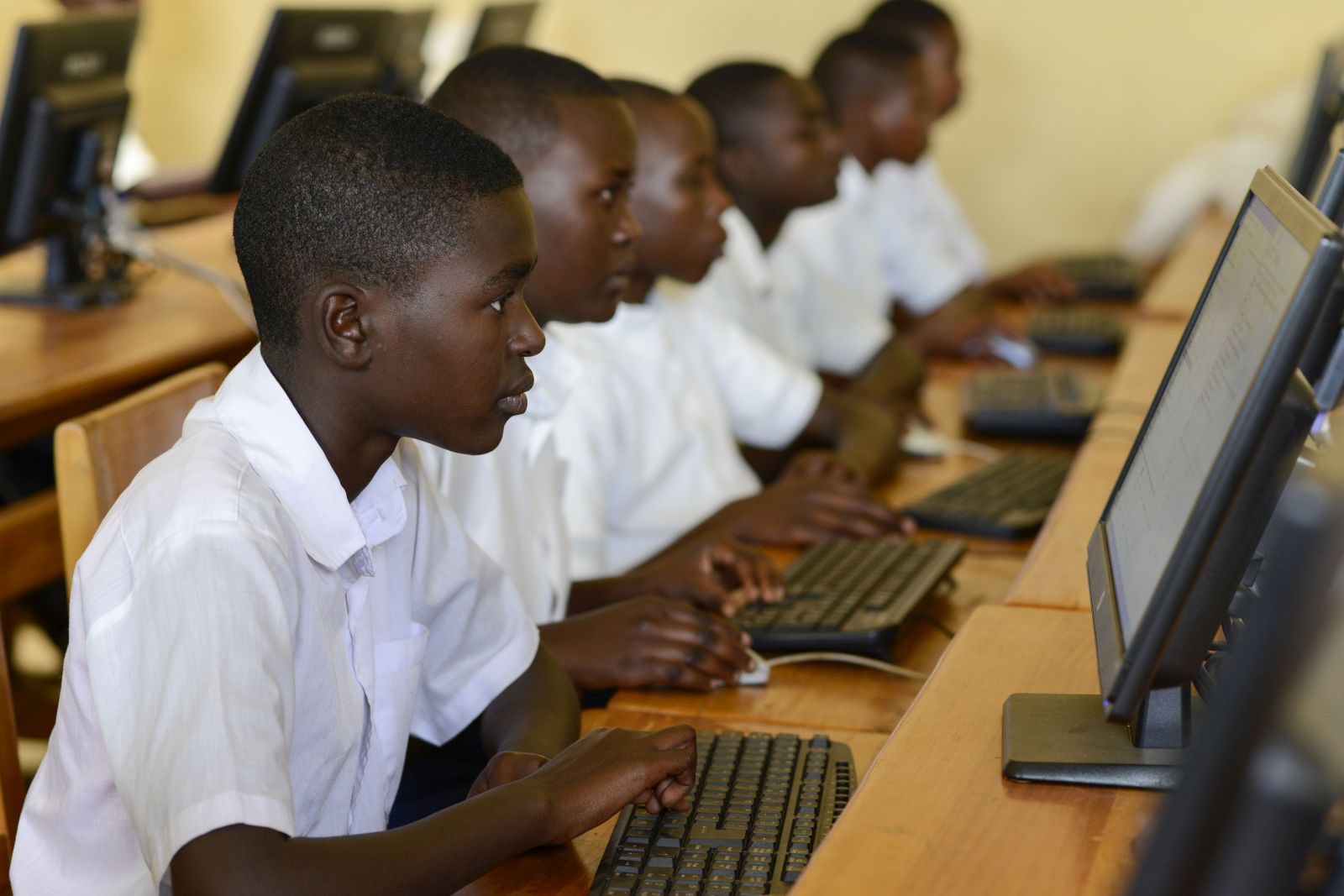Educational practices
The dire consequences of school violence

Despite internationally established goals to combat violence against children, the global initiative End All Corporal Punishment reports that corporal punishment in the home is currently legal in 139 countries and in schools in 67 countries. The figures are highest in Southeast Asia and Africa, where physical punishment in schools is both legal and socially accepted in many countries.
For eight years, a team led by psychologist Tobias Hecker at Bielefeld University has dedicated themselves to researching and preventing violence in child education in eastern Africa, including Tanzania. In one study, the researchers interviewed pupils, parents and teachers at Tanzanian primary schools. 96 % of the teachers reported having used at least one form of physical or emotional violence against pupils in the month prior to the survey.
Threatening students with violence was the most widespread admission. One in five teachers did so more than 20 times a month. They also admitted frequently shouting at students and hitting them on buttocks, arms, legs or hands with a ruler, cane or similar instrument. The teachers’ statements were corroborated by the fact that 95 % of students reported experiencing at least one form of violence at the hands of teachers once a month.
Decline in student performance
Studies in recent years have shown a direct link between violence experienced by children and psychological problems. The more violence children experience at the hands of teachers and parents, the more likely they are to display emotional problems such as depression or social withdrawal and behavioural problems such as aggression or hyperactivity. The psychological stress makes it harder for students to concentrate and learn.
Children who experience violence are usually cognitively less able. This is evidenced, for example, by lower grades. While the impact on a child’s mental health receives little social attention, research showing the effects on academic performance generates great interest among teachers and parents alike. There is an urgent need to protect children from violence – not only for the sake of their own health and development but also to avoid adding to the economic problems faced by low-income countries like Tanzania. Plan International, a non-governmental organisation for children’s rights, for instance, conducted a study on the economic consequences of violence against children, taking India as an example: the cost to society of children dropping out of education due to school violence was estimated to be between $ 1.5 and 7.5 billion per year.
In view of the devastating consequences – emotional, cognitive, economic and social – it is important to question why teachers use physical and mental punishment to discipline students. Hecker’s research project also addresses this question and has found that an important role is played by teachers’ attitudes to violence in education.
Approval and acceptance of violence can be explained, amongst other things, by what teachers themselves experienced during childhood. Many were exposed to the same violent practices and grew up in a social environment where corporal punishment was considered normal. One participant in the study reports: “Thinking about the beatings I received from my teachers, and what I felt and thought about them, triggered a change. The very thought of beating a student now immediately brings to the surface the anger, despair and hatred I felt when I was beaten by my own teacher.”
However, concrete beliefs and myths about physical punishment also play an important role. Many teachers consider other educational strategies less effective. They believe corporal punishment teaches respect and builds character. There is also a perception that some children cannot be controlled by other methods. Furthermore, with classes ranging up to 200 students, teaching materials in short supply and household incomes generally below $ 220 a month (with an average of five persons per household), teachers work under intense stress. Various studies have shown that stress leads to more aggression and teachers under greater stress use more violence against students.
Teaching non-violent education
Together with African academics, Hecker’s team has developed a training programme for teachers that addresses the root causes of the use of violent punishmen (see box). Interaction Competencies for Children for Teachers (ICC-T) is a one-week interactive workshop for 20 to 30 participants. It conveys information about child development, consequences of violence and alternative educational practices (such as reinforcement systems, logical consequences and participation). In one part of the programme, participants are also encouraged to reflect on their own experiences of violence in childhood – as well as their current role as perpetrators of violence.
What is special about ICC-T is that it is specifically designed for low-resource contexts. Participants are motivated to participate actively in shaping the workshop and to engage in an extensive exchange with others. After the workshop, teachers are also encouraged to build a network for exchanging information on social media. In the long term, that will reduce the likelihood of participants reverting to old habits in the classroom. It will also strengthen collegial bonds and communication between teachers and thus improve the workplace atmosphere.
So far, ICC-T has been implemented at 17 schools for three studies. The participating schools were primary and secondary schools in urban and rural areas of Tanzania and Uganda. Teachers showed keen interest in the workshop, and the vast majority of participants were highly motivated. The first two studies for which the programme was implemented and evaluated at secondary schools in Tanzania and Uganda yielded promising results.
Participating teachers reported that their attitude to violence changed and they subsequently used less physical and emotional violence against students. One participant reported: “I never thought about the feelings it engendered in my students. But it does not make me feel good to know that they hate me, that they want revenge, that they fear me and no longer respect me. It’s a horrible thought and it is never, ever what I wanted.”
Laura Hinze worked on Tobias Hecker’s project for her master’s thesis in psychology. She is now a clinical psychologist at an acute psychiatric clinic.
mail@laurahinze.de











